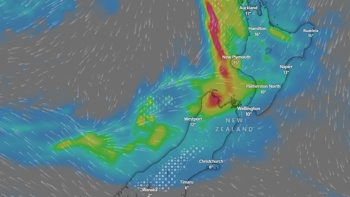The process of building light rail, or modern trams, in Auckland will drag on until next year with more work to be done on deciding who will deliver the multi-billion dollar project.
Transport Minister Phi Twyford today said the Government has chosen a consortium led by the New Zealand Super Fund and the NZ Transport Agency as the preferred delivery partners.
"This process will take up to six months and will mean we won't have spades in the ground in 2020," said Twyford, who did not say when work would begin.
Twyford was present with Prime Minister Jacinda Ardern when she made an election promise in 2017 to build light rail from the CBD to Mt Roskill within four years, followed by light rail from Mt Roskill to the airport and to Westgate in West Auckland within 10 years.
Labour later said it would extend the western line a further 9km to Kumeu.
In April this year, Twyford said the Government might have to scale back its light rail programme for Auckland by scrapping a line from the city centre to West Auckland.
NZ Infra, a joint venture between the New Zealand Super Fund and Canada's CDPQ Infra group, made an unsolicited bid to the Government in May last year to build, finance and operate light rail in Auckland.
Twyford sought further advice from the Ministry of Transport and Treasury on this proposal.
Around the same time, NZTA was given the job of setting up a process to procure, finance and deliver light rail.
Both Ardern and Twyford have said light rail would be a game-changer for Auckland.
"It will be a magnet for private investment in urban renewal and will be able to carry 11,000 commuters per hour – the equivalent of four lanes of motorway," Twyford said.
He said what NZ Infra is proposing has never been considered before in New Zealand, based on a public-public investment model. This includes co-designing the asset with the Government and its partners, with the majority of financing and risk transferred to NZ Infra.
The Government has set aside $1.8 billion of seed funding on the project, costing at least $6b.
"There are significant differences in how the two options would be financed and delivered. The NZTA is exploring a range of procurement, financing and delivery models, including alliances and public-private partnerships, and will continue to develop these," Twyford said.
Twyford said both options are credible, but neither are fully developed and the long-term implications need to be understood.
He has asked the Ministry of Transport to manage this process, and to ensure that Auckland Council and Auckland Transport are closely involved in this work over the coming months.
A spokesman for Twyford said the business case would be released in due course once the Ministry of Transport-led process was complete.
He said both NZ Infra and NZTA were looking at both lines, but were focusing on City Centre to Māngere.
"We'll have timelines, including expected construction dates, once the process is finished," the spokesman said.
NZ Super Fund CEO Matt Whineray was pleased to be taking part in the new process being led by the Ministry of Transport to advance light rail in Auckland.
"We are currently preparing a range of information that we will provide to the ministry," he said.
CDPQ Infra managing director Jean-Marc Arbaud said: "NZ Infra is committed to presenting the Government with the highest quality light rail proposal possible."
Heart of the City chief executive Vic Beck said the CBD business body supports the development of rapid transit to ease congestion and transform a rapidly growing
city.
But she said major projects like light rail cannot be developed in a bubble, "as we have seen by the devastating effects on business of the City Rail Link development".
She was referring to a number of businesses facing financial ruin from prolonged delays along the central city route of the $4.4b project. Calls for urgent help by Beck for the struggling businesses is still being considered by Twyford.
"As yet we do not have answers to questions we asked a considerable time ago, including the rationale for light rail versus other options; and assurance that light rail is fully integrated into wider transport plans for the city.
"We expected these questions to be answered in the business case that was promised early this year and subsequently delayed by the NZ Super Fund's alternative approach," said Beck.
She also wants an assurance that there will be adequate time to plan for a significant and disruptive project like light rail, and that it will be coordinated to avoid unplanned and unnecessary cumulative impacts.
"The city must learn from the lessons of the CRL," Beck said.
Take your Radio, Podcasts and Music with you









